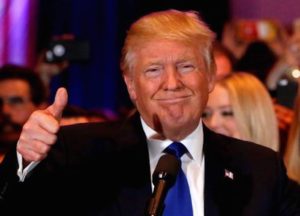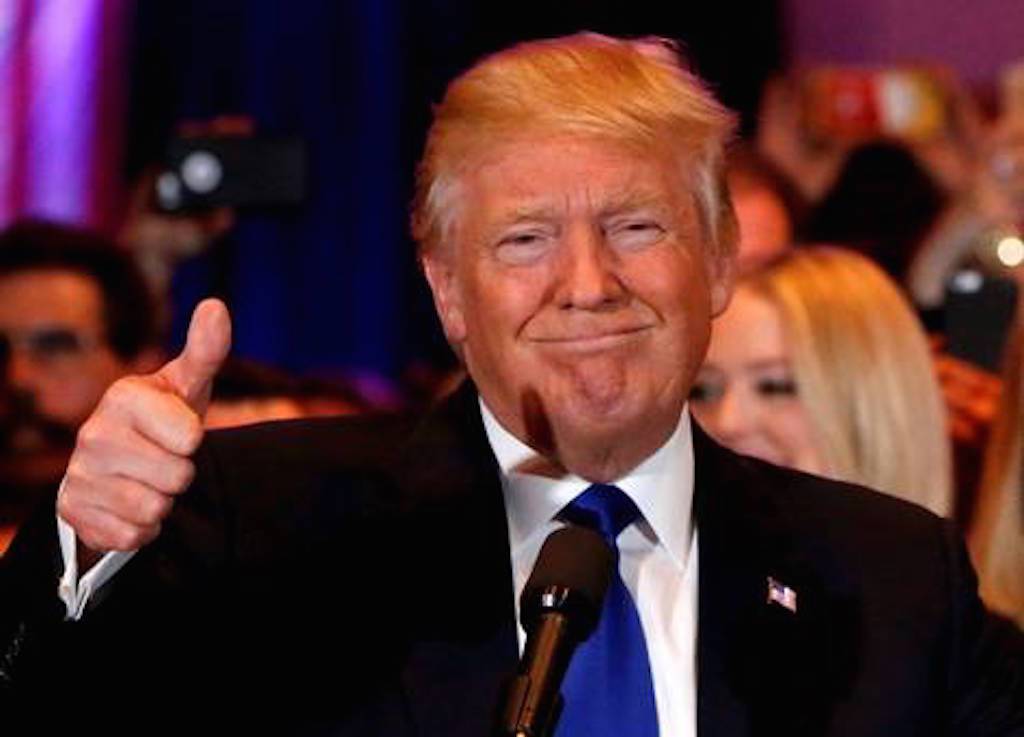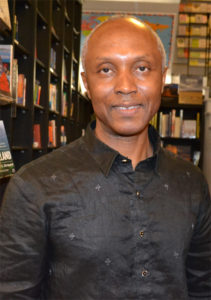 Last week, the Republican Party presidential candidate Donald Trump stunned much of the world—and, likely, himself—by defeating his Democratic Party rival, Hilary Rodham Clinton, in one of the most contentious elections in American history. Trump’s triumph—considered highly unlikely by most pundits and pollsters—will be the subject of scholarly essays as well as popular and research tomes. Entirely unheralded, Trump’s election is certain to send students of American presidential politics back to the drawing board.
Last week, the Republican Party presidential candidate Donald Trump stunned much of the world—and, likely, himself—by defeating his Democratic Party rival, Hilary Rodham Clinton, in one of the most contentious elections in American history. Trump’s triumph—considered highly unlikely by most pundits and pollsters—will be the subject of scholarly essays as well as popular and research tomes. Entirely unheralded, Trump’s election is certain to send students of American presidential politics back to the drawing board. For months, Mrs. Clinton—whose husband was a beloved president from 1993 to 2003—led in virtually all the reputable polls. The few polls that had Trump leading were derided for their faulty methodology. In much of popular perception, the last three months of the presidential campaigns resembled a veritable coronation—of Mrs. Clinton—happening in agonizingly tedious slow motion.
Of course, the Democratic candidate’s campaign had its wrinkles. She was dogged by questions about her decision, when she served as President Barack Obama’s Secretary of State, to use a private email account to conduct her official business. Did her action enable such powerful nations as China and Russia to hack her correspondence and compromise US interests? The Federal Bureau of Investigation (FBI) investigated her—twice. And twice, FBI director James Comey concluded there was nothing in her email transactions to warrant indictment.
Still, it’s likely that Mrs. Clinton was hurt by her response to the email controversy. She seemed to balk at the idea of releasing all the emails to investigators. She “outed” Colin Powell as the person who advised her to use a private email. She claimed that tons of the email had been deleted, an assertion that proved misleading. And she told investigators numerous times that she could not recall key details of certain issues.
There was nothing she did that a battalion of male American politicians have not done, or would not do. Yet, as the first American woman to bear a major party’s flag in an election, such peccadilloes as fibbing, evasiveness and concealment—rather commonplace among male politicians, including her husband—were held against her.
She faced other challenges. Her opponents alleged that, as Secretary of State, she had failed to create a strong enough wall between government business and the fortunes of the Clinton Foundation, founded by her husband. No smoking gun was ever found, but Wikileaks (which seemed to take an inordinate interest in the election) released email that suggested that her office took favorable notice of certain individuals who had made handsome donations to the foundation. Beyond the desperate avalanche of Wikileaked documents, a tribe of authors published books that accused Mrs. Clinton of crimes light and grave. One of the most widely circulated books, “Clinton Cash,” was made into a documentary available on youtube. It purports to establish that Secretary Clinton used her office to grant favors to individuals and countries that gave huge donations to the Clinton Foundation or paid astonishing speaking fees to former President Bill Clinton. Nigeria came up in the category of Mr. Clinton’s high speaking fees. He reportedly collected $1.4 million for two talks in Nigeria, said the author of “Clinton Cash.” That’s $700,000 a piece. And the author further claimed that the former president’s going rate at the time was a figure just north of $200,000.
Some commentators have blamed Mr. Trump’s shocking routing of Mrs. Clinton on racism and misogyny. I believe those factors were present. After all, however well President Obama has done in office—bringing back the US economy from a deep recession, for one; restoring dignity and intelligence to the White House—there were some Americans who treated him as an interloper, indeed as an alien who had stolen his way into the sanctum sanctorum of American power.
Mr. Trump was a major, apparently widely admired voice for those Americans who regard Mr. Obama as an impostor. In fact, his political credentials were secured by his illogical contestation of the incumbent president’s birth in the US, a condition necessary to hold the highest political office in the US. Did he believe it, or was he venting a mischievous, even diabolical untruth out of racial animus? If he did believe it, then his mental capacity is called into question. If he was merely out to make political capital out of an assertion he knew to be false, then we must chalk up his moral deficit.
It’s clear that many voters were unwilling to cut Mrs. Clinton a slack they routinely offer to her male counterparts, including her main opponent and vanquisher in last Tuesday’s election. It was as if voters were determined to forgive Hilary little or nothing, but to hold little or nothing against Donald. I can’t claim to know why exactly. Some wise pundits have suggested that the Republican candidate’s counter-intuitive style—making enemies of Mexicans, Muslims, strong women, immigrants—translated into a move of genius: consolidating his white, working class base while grabbing enough votes from among the groups he pilloried to coast to victory.
I’d suggest that Mrs. Clinton also had a hand in her disastrous outing. Following her party’s convention—during which documents released by Wikileaks proved that the party establishment undermined her main primary challenger, Bernie Sanders—she might have hit the ground running. Instead, she sometimes came across as smug, carrying on as if she’d bagged the election. As Mr. Trump traversed the country, speaking at rallies and risking saying foolish things to the media, she preferred to zip from one fundraising event to another. It was as if she believed that the candidate with the most cash would be the automatic winner. That poor choice sustained the impression, justified or not, that the Clintons were too obsessed with cash. Not only did she cocoon herself in fundraisers, she also kept reporters at bay, doubtless dreading questions about Benghazi, the email controversy, and the Clinton Foundation.
My hunch is that her instincts proved self-sabotaging. And when she finally began to engage with voters, she appeared to play shy of trumpeting her own qualifications. Rather, her campaign often resorted to the argument that Mr. Trump was simply a scary—or scarier—prospect. I wonder if her campaign’s appeal to the benignity of her negativity—as opposed to the malignancy of Mr. Trump’s—did not contribute significantly to dooming her quest.
Whatever one’s take on last week’s electoral contests, it seems to me that Nigeria has several lessons to learn. First, contrary to the impression that INEC often leaves, elections can—and should—be smooth affairs. As results rolled in last week and it emerged that Mr. Trump was going to win, the US stock market went into shock, and at one point was down more than 700 points. Yet, once the networks reported that Mrs. Clinton had called her main opponent to congratulate him—and after Mr. Trump’s calm, gracious post-victory speech—the market rallied, soaring to a record high the next day.
It all goes to show what happens when a people have achieved some sense of national pride and identity. Mr. Obama, who had fought hard to prevent a Trump victory, spoke in a conciliatory, statesmanlike manner, further steadying nerves. US national interests trump Trump and Clinton and Obama. It’s a lesson we need to imbibe in Nigeria.
Please follow me on twitter @okeyndibe








